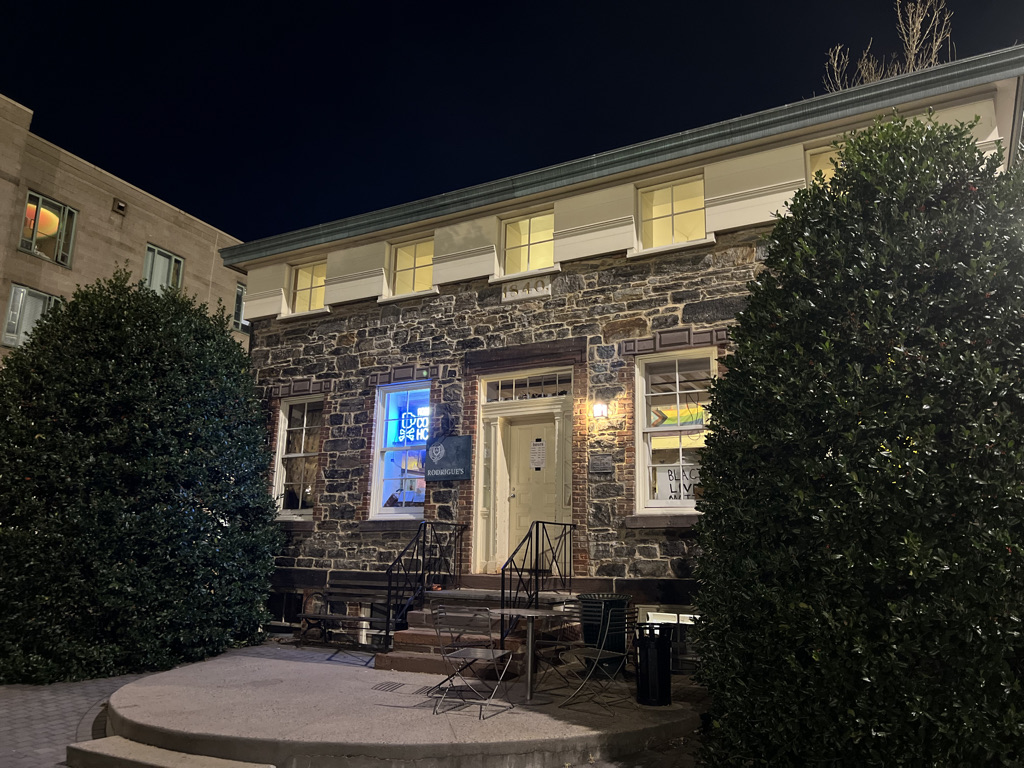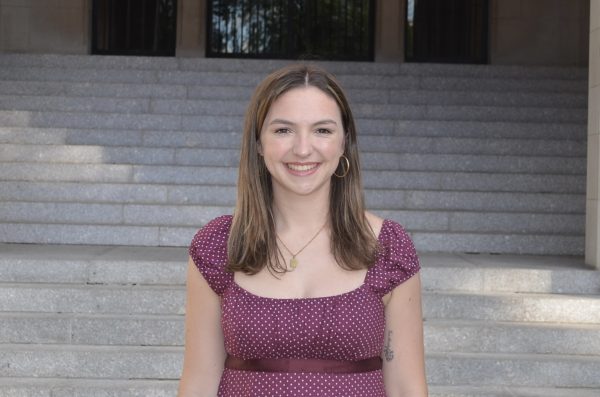Rodrigue’s Coffee House, or Rod’s, a Fordham University establishment, recently updated its constitution to address some issues that had been brought up by club members. On Sunday, they held a club meeting to discuss and amend the constitution, which ended with a majority vote of “yes,” allowing the new constitution to move to the next steps of ratification.
During the meeting, Rod’s Co-President Ryan Morre, FCRH ’25, explained the issues with the current constitution, stating that it was underdeveloped and outdated. The first amendments to the constitution that were discussed were on areas such as members, voting procedures, officers and elections.
“[The constitution] contradicts itself multiple times, and it’s very vague with everything. So me and Ryan were like ‘we should probably fix this,’” said Co-President Chloe Santana, FCRH ’25.
The final proposed amendment was a statement on the legacy of William Rodrigue, for whom the establishment is named. The Rodrigue family were wealthy slave-owners who emigrated from the French colony of Saint-Domingue after the Haitian Revolution. They were also strong proponents of slavery, and according to historical information, Rodrigue had a significant influence in changing the views of Archbishop John Hughes, the first president of Fordham, in regard to the institution of slavery.
Rodrigue himself was an architect, and he designed many of the buildings on Fordham’s Rose Hill campus. Additionally, he lived in Alumni House, the building that is now home to Rod’s. However, in spite of his significant influence on the university, Rod’s members felt that his views and actions should be condemned, as they don’t align with the values of the community.
“We just wanted to make sure that everybody knows that we know our history, it is public history, and that we are not neutral on it, obviously, and we understand that this history mismatches with political opinions and positions that are widely considered good,” said Moore.
Rod’s members promote the coffee house as a safe and welcoming space, and they felt its history needed to be addressed to maintain these values. According to Moore and Santana, every couple of years people tend to rediscover the history of Rodrigue, and will then bring the facts to the Rod’s members to ensure that they are aware of their history. But in past years, members tended to dismiss the facts to not undermine the values of the Rod’s community by confirming the relation of the establishment to a pro-slavery individual.
However, Moore and Santana feel it is important to not brush this kind of historical information under the rug, and instead to confront it head on. They acknowledged that confronting prejudice can be uncomfortable and taking actions to distance an institution from its history can be difficult, but it is necessary in order to be actively anti-racist.
“When you’re trying to form a space and support a community it’s important to be cognisant of the entire history of the club,” said Santana. “And it’s anti-productive to try to put anything under the rug. I think it’s important to acknowledge everything in [our] history and be able to act in accordance to our current values as a safe space and as a place on campus that should be open to all Fordham students.”
Santana and Moore both addressed the issue of dismissing the true history of an institution in regard to Fordham as a whole. Fordham prides itself on being a diverse community, but its history with institutions like the Catholic church, which has been criticized by many modern diversity movements, is often swept under the rug, according to Moore.
“It’s important to be transparent, and I love making people uncomfortable, and I think it’s important to be uncomfortable and be cognisant of ways the past has been wrong because then you don’t make the same mistakes that people have made in the past,” Santana said.
The amendment to the constitution will specifically consist of a statement addressing William Rodrigue and his family and their role in promoting slavery. The amendment also states that “The members of Rodrigue’s Coffee House recognize that the man who serves as its namesake was morally and politically reprehensible, condemning his role in pro-slavery agitation in the University’s early history. The members will strive to create an environment of openness, social awareness, and recognition of essential equality between persons in resolute defiance of this legacy.”
In order for the constitution to become officially amended, it first needs to be approved by Rod’s advisor, Mark Less, assistant director for student organizations and programming in the Office of Student Involvement, and by the United Student Government. It will also have to be seen by Catherine McGlade, assistant dean for student involvement, and Christopher Rogers, dean of students at Rose Hill.
Moore expects this process to take some time, but they hope for the updated document to be approved by the end of the semester. But while the constitution has not yet been approved by the University, Moore feels that adding the statement to the constitution, even if unofficially, is an important step in ensuring that everyone feels safe, comfortable and welcome in Rod’s.
“We just want to make it clear that this history did happen, and as contemporary individuals we can do the best we can to address it and confront it directly,” said Moore. “And I think that that’s a really big step in making Fordham comfortable for people who come from everywhere.”









































































































































































































